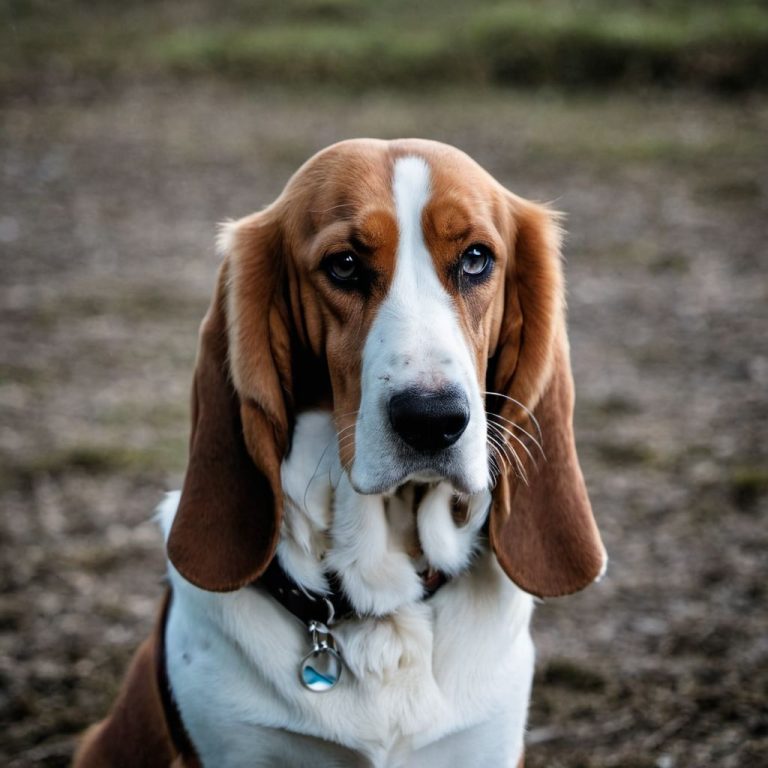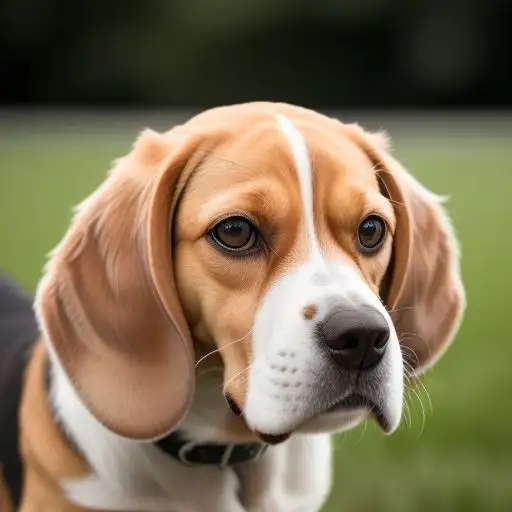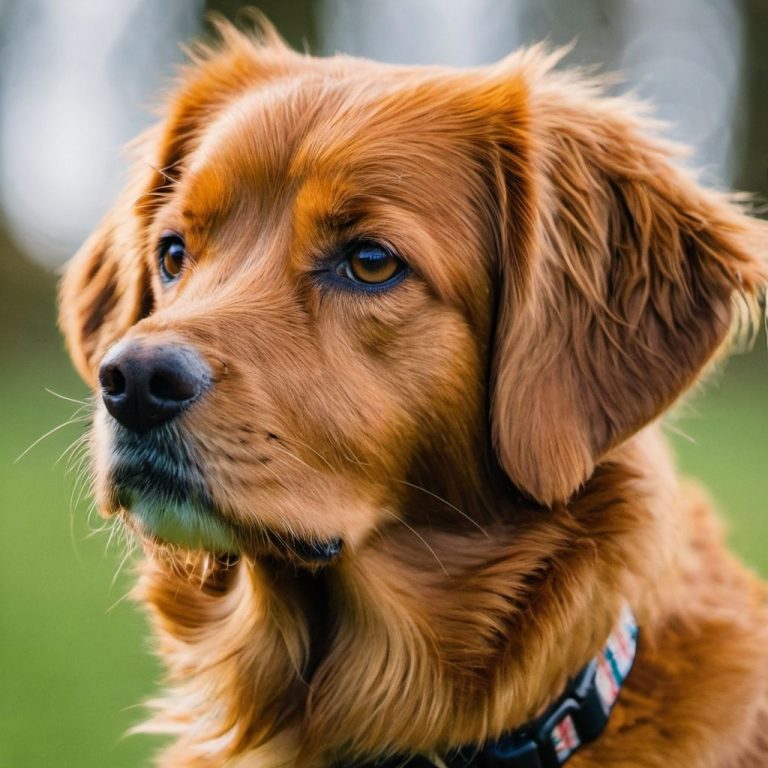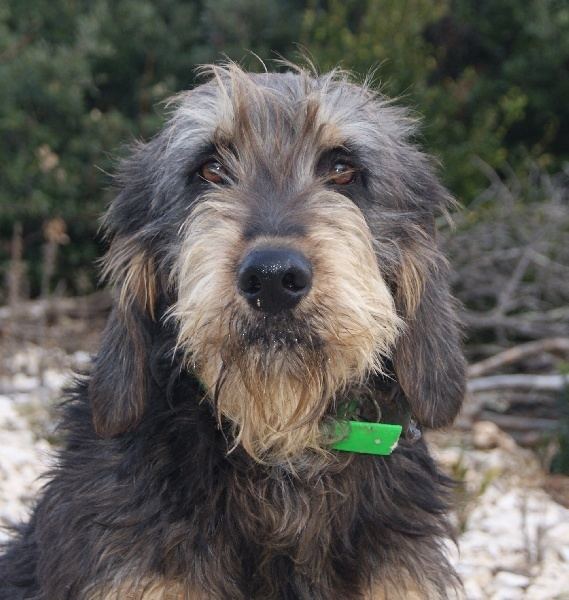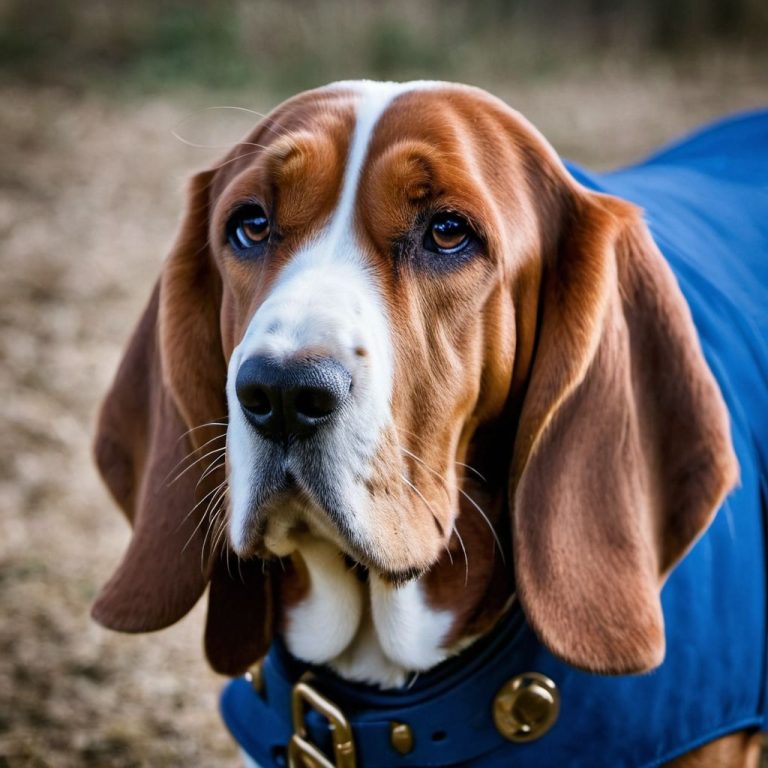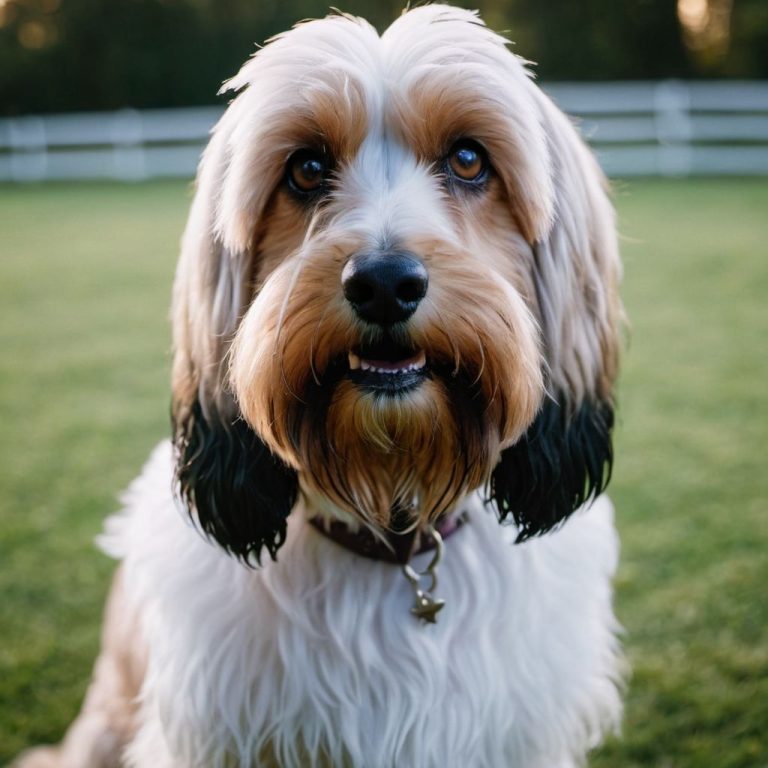BASSET HOUND: A Regal Breed
Dive into the world of Basset Hounds, where endearing charm meets unwavering loyalty. Originating from France, these low-to-the-ground canines boast a remarkable sense of smell, making them excellent scent hounds. Uncover the fascinating history behind their development, from hunting roots to becoming cherished family pets.

A Basset Hound is a charming and affectionate dog breed known for its distinctive appearance, characterized by its long ears and droopy expression. Explore the world of Basset Hounds, renowned for their friendly nature and gentle temperament. Learn about their history, care requirements, and unique traits that make them wonderful companions. Whether you’re a prospective owner or a Basset Hound enthusiast, discover valuable insights into this lovable breed’s personality and how to provide them with the best possible care.
Explore the distinct features that set Basset Hounds apart, including their iconic droopy ears and soulful eyes. Delve into their amiable and patient demeanor, making them ideal companions for families and individuals alike. Learn about their exercise needs, grooming requirements, and nutritional considerations to ensure a happy and healthy life for your furry friend.
Discover the joy of sharing your life with a Basset Hound, and find practical tips on training and socialization to foster a well-rounded and contented companion. Whether you’re captivated by their unique appearance or seeking a devoted four-legged friend, unravel the delightful world of Basset Hounds with our comprehensive insights.
History
The Basset Hound, with its distinctive appearance and remarkable scenting abilities, has a rich history that traces back to 6th-century France. Initially bred for hunting small game, particularly rabbits, the Basset’s name is derived from the French word “bas,” meaning low, reflecting its short stature. Over the centuries, breeders selectively developed these hounds, emphasizing their exceptional sense of smell and maintaining their affable temperament.
During the 19th century, Basset Hounds gained popularity among French aristocrats and were further refined for their hunting prowess. It was in this era that the breed’s iconic features, such as the long ears and soulful expression, became more pronounced. Renowned for their ability to track scents with unmatched precision, Basset Hounds played a crucial role in hunting expeditions.
The breed’s journey continued as they captured international attention, and their introduction to England in the late 19th century marked a turning point. Bassets gained recognition for their charming personalities and became sought-after companions. In 1935, the Basset Hound Club of America was established, solidifying the breed’s presence in the United States.
Today, Basset Hounds are celebrated not only for their historical significance as skilled hunters but also for their endearing qualities as beloved family pets. Their distinctive appearance, gentle demeanor, and unwavering loyalty make them a cherished breed worldwide, embodying a captivating blend of history, charm, and canine companionship.
Personality
The Basset Hound is renowned for its amiable and laid-back personality, making it a delightful companion for families and individuals alike. This breed exudes a gentle and friendly demeanor, often described as easygoing and affable. Bassets are known for their patience, particularly with children, making them excellent family pets.
Despite their somewhat lazy appearance, Basset Hounds possess a playful side that endears them to those around them. They enjoy interactive activities and, while not the most energetic breed, can be surprisingly enthusiastic when engaged in play or scent-related games. Their love for sniffing and tracking scents showcases their strong olfactory instincts and contributes to their unique charm.
Basset Hounds are social animals that typically get along well with other pets, fostering a harmonious environment within multi-pet households. Their loyalty to their human companions is unwavering, and they often form strong bonds with family members. While they may display a stubborn streak during training due to their independent nature, consistency and positive reinforcement can help channel their intelligence into obedience.

Physical Characteristics
Height
- Male 12-15 inches
- Female 11-14 inches
Weight
- Male 55-75 pounds
- Female 45-65 pounds
Coat
This hound has a short, dense coat that is smooth and hard, with loose skin and wrinkles around the head and neck.
Color
The common colors are:
- Tricolor (black, white, and tan)
- Bicolor (lemon and white)
- Mahogany and white
- Red and white
Eyes
They have large, soulful eyes with a sad expression, ranging in color from brown to dark hazel.
Ears
These are known for their long, droopy ears that hang low and contribute to their distinctive appearance.
Tail
He has a long, sabre-like tail that is set low, complementing their unique and characteristic silhouette.
Life Span
The average life span is around 10-13 years.
Temperament
The Basset Hound’s temperament is a harmonious blend of gentle charm and affable character. Renowned for their laid-back nature, these dogs exude a calm and easygoing demeanor that makes them exceptionally well-suited for family life. Basset Hounds are known for their patience, especially with children, and they often form strong bonds with their human companions.
While they may appear somewhat lazy, Basset Hounds possess a playful side that emerges during interactive activities. Their love for sniffing and tracking scents showcases their innate hunting instincts, adding an element of curiosity to their personality. Despite their independent streak, Basset Hounds are loyal and devoted to their families, often seeking affection and companionship.
The Basset’s temperament also reflects a degree of stubbornness, particularly during training, but this trait is balanced by their intelligence and desire to please. Consistent training with positive reinforcement is key to channeling their skills into obedience. Known for being sociable, Basset Hounds generally get along well with other pets, contributing to a harmonious household environment.
In summary, the Basset Hound’s temperament is marked by a friendly and patient disposition, making them wonderful companions for those seeking a loving and laid-back canine friend. Their unique combination of playfulness, loyalty, and easygoing nature adds to the overall appeal of this charming breed.
Grooming
Basset Hounds, with their short and dense coat, require moderate but consistent grooming to keep them looking and feeling their best. Regular brushing, ideally a few times a week, helps to remove loose hairs, dirt, and distribute natural oils. This not only promotes a healthy coat but also reduces shedding. Given their characteristic long ears, it’s crucial to inspect and clean them regularly to prevent ear infections. Gentle cleaning with a veterinarian-approved ear solution can help maintain ear hygiene.
Their facial wrinkles, while endearing, need attention to prevent moisture buildup, which could lead to skin issues. A gentle wipe with a damp cloth and thorough drying can help keep these areas clean. Basset Hounds are prone to obesity, so monitoring their weight and providing a balanced diet is crucial for their overall health, including the health of their skin and coat.
Regular dental care is essential to prevent dental issues. Brushing their teeth several times a week helps maintain good oral hygiene. Nail trimming is also necessary, and it’s advisable to start this routine early to get them accustomed to the process. Maintaining a healthy diet, regular exercise, and grooming routine contribute to the overall well-being of a Basset Hound, ensuring they remain happy and healthy companions for years to come.
Training
Training a Basset Hound requires a patient and consistent approach due to their independent nature. Early socialization is crucial to expose them to various people, environments, and situations, helping to shape a well-adjusted adult dog. Positive reinforcement methods, such as treats and praise, work best as Basset Hounds respond well to encouragement.
While they are intelligent dogs, Basset Hounds can be a bit stubborn, so keeping training sessions short, engaging, and enjoyable is key. Focusing on basic commands like sit, stay, and come is important, as is leash training given their strong scent drive. Incorporating mental stimulation, such as puzzle toys, can help prevent boredom and keep them mentally sharp.
It’s essential to address any digging tendencies early on, as Basset Hounds may be inclined to use their strong noses to explore the yard. A consistent routine for bathroom breaks is crucial for house training success. Due to their potential for weight gain, monitoring their diet and providing regular exercise is beneficial for both physical health and mental well-being.
Enrolling in obedience classes or seeking guidance from a professional trainer can be advantageous, especially for first-time owners. Building a strong bond based on trust and positive reinforcement forms the foundation for a well-behaved Basset Hound. With patience, consistency, and a gentle approach, owners can unlock the full potential of their Basset Hound’s intelligence and create a happy and well-mannered companion.

Exercise
Basset Hounds may have a laid-back demeanor, but regular exercise is essential to maintain their overall health and prevent obesity, a common concern for this breed. While they are not known for high energy levels, moderate daily walks are crucial to keep them fit and mentally stimulated. Due to their strong sense of smell, engaging activities that allow them to use their noses, such as scent games or short tracking exercises, can be enjoyable for them.
Although Basset Hounds may not excel in agility sports, they often appreciate a fenced area where they can explore and follow scents at their own pace. Interactive toys and playtime in a secure environment can also contribute to their physical well-being. It’s important to monitor their activity level and adjust exercise routines to suit their individual needs, as their long bodies may be prone to certain joint issues.
Owners should be cautious about over-exerting Basset Hounds, particularly in hot weather, as their low stature makes them more susceptible to heat-related stress. As with any breed, mental stimulation is just as crucial as physical exercise, so incorporating puzzle toys and interactive games can help keep their minds sharp and content. Striking a balance between physical activity and mental engagement ensures a happy and healthy lifestyle for Basset Hounds.
Nutrition
Proper nutrition is vital for the health and well-being of Basset Hounds, who are prone to obesity. Choosing a high-quality dog food that meets their specific needs is crucial. Basset Hounds can be sensitive to weight gain, so opting for a balanced and portion-controlled diet is essential. Feeding them twice a day rather than one large meal helps regulate their metabolism and can prevent overeating.
Given their potential for joint issues, a diet rich in glucosamine and chondroitin may support joint health. Consultation with a veterinarian is recommended to determine the appropriate diet based on their age, weight, and any specific health concerns. Monitoring their weight and adjusting their food intake as needed is crucial to prevent excess pounds, which can exacerbate potential health issues.
As with all dogs, providing fresh water at all times is essential for hydration. Additionally, being mindful of treats and snacks is important to avoid excessive calorie intake. Basset Hounds may have a tendency to beg for food, so establishing and maintaining a consistent feeding routine helps manage their expectations and encourages a healthy eating pattern.
Health Concerns
Basset Hounds are generally robust dogs, but like any breed, they may be prone to certain health concerns. It’s important for owners to be aware of these issues and work closely with veterinarians to ensure the well-being of their pets.
Obesity
Basset Hounds have a tendency to gain weight, which can exacerbate other health issues. Obesity puts additional stress on their joints, contributing to musculoskeletal problems. A balanced diet, portion control, and regular exercise are crucial to maintaining a healthy weight.
Ear Infections
Their long, droopy ears can be prone to infections due to poor air circulation. Regular cleaning and inspection are necessary to prevent moisture buildup, which can lead to ear infections.
Skin Fold Infections
The skin folds and wrinkles on a Basset Hound’s face can trap moisture, making them susceptible to skin infections. Keeping these areas clean and dry is important to prevent dermatological issues.
Joint Problems
Basset Hounds are predisposed to joint conditions such as hip dysplasia and elbow dysplasia. Regular monitoring for signs of discomfort or stiffness, especially as they age, is crucial. Providing joint supplements and maintaining a healthy weight can help manage these issues.
Eye Conditions
Glaucoma and progressive retinal atrophy are potential eye concerns in Basset Hounds. Regular eye check-ups are essential to detect and address these issues early on.
Heart Conditions
Some Basset Hounds may be prone to certain heart conditions. Routine cardiac examinations by a veterinarian can aid in early detection and management.
Intervertebral Disc Disease (IVDD)
Due to their long backs, Basset Hounds are at a higher risk for IVDD, a condition where the discs between the vertebrae can herniate, causing pain and mobility issues.
Gastric Torsion (Bloat)
Basset Hounds, like many deep-chested breeds, can be susceptible to gastric torsion, a life-threatening condition where the stomach fills with gas and twists on itself. Feeding smaller, frequent meals and avoiding vigorous exercise after meals can help reduce the risk.
Bottom Line
Basset Hounds are generally affectionate and charming companions, prospective owners should be aware of potential health concerns associated with the breed. Managing their weight, addressing ear and skin care, monitoring joints and eyes, and staying vigilant for specific breed-related issues are essential for ensuring the long-term health and happiness of Basset Hounds.
FAQs (Frequently Asked Questions)
Q: Do Basset Hounds bark a lot?
A: Basset Hounds are not known for excessive barking. They have a distinctive baying sound but are generally not considered to be excessively vocal.
Q: Do Basset Hounds drool a lot?
A: Yes, Basset Hounds are known for their drooling tendencies, especially after eating or drinking. Keeping a towel handy can be useful.
Q: Are Basset Hounds good with children and other pets?
A: Yes, Basset Hounds are known for their patience and are generally good with children. They also tend to get along well with other pets, making them suitable for families.
Q: Are Basset Hounds good apartment dogs?
A: Basset Hounds can adapt to apartment living if provided with sufficient exercise and mental stimulation. However, their size and occasional vocalization should be considered.
Q: Are Basset Hounds prone to separation anxiety?
A: Basset Hounds may develop separation anxiety if left alone for long periods. They thrive on companionship, so it’s beneficial to provide them with interactive toys and activities when alone.
Q: Are Basset Hounds good watchdogs?
A: Basset Hounds are generally friendly and may not be the best watchdogs. While they may bark to alert their owners, their friendly nature typically extends to strangers.

